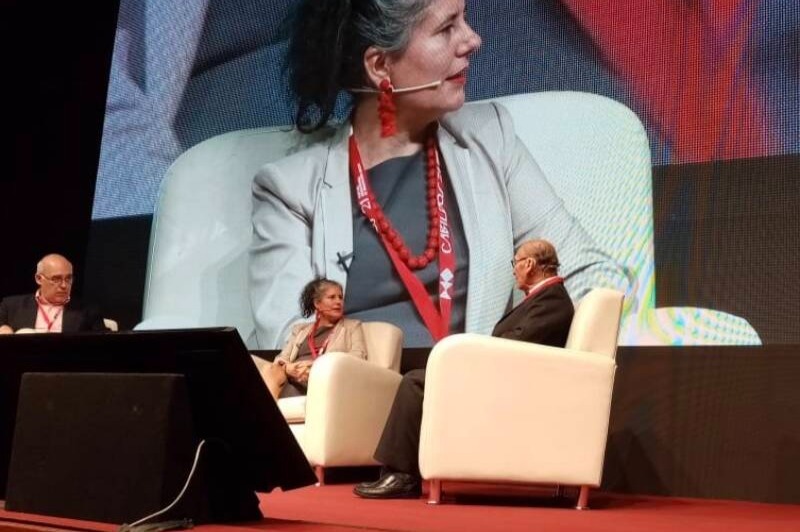Historian Professor Natalia Sobrevilla Perea is connecting Peruvians with their past and helping to shape a fairer future. Written by Evie Goodwin.
For Natalia Sobrevilla Perea, Professor of Latin American History at Kent, learning from the past is essential for social and political progression in the present. By engaging with the public through the media and closely working with the Peruvian government, Natalia is bringing new light to Peru’s history:
I believe that in the case of Peru, but everywhere as well, it is very important to know what has happened in the past so that you have a real assessment of the situation..
Between 1980-2000 Peru was brought to the brink of collapse. Internal conflict between the government and communist revolutionaries left over 70,000 people dead, and a further 230,000 were displaced. During this time 200,000 men and women were sterilised against their will under the oppressive regime of President Alberto Fujimori.
When presented with these facts it’s impossible to imagine why this part of history goes widely unrecognised. Natalia’s sustained engagement with public and political forces is changing this.
The Lugar de la Memoria, Tolerancia e Inclusión Social (LUM), located in Lima, was created in 2015 to commemorate the lives lost during the two decades-long period of violence. In November 2014 Natalia helped set up a new department, the Centre for Documentation and Investigation (CDI-LUM), to help digitise and organise important artefacts related to the conflict. 150,000 primary sources are now easily accessible online.
Numerous workshops and educational activities set up by Natalia with the help of LUM have ensured that Peru’s history is embedded in the minds of younger people. In 2018 she was involved in an essay competition in which winners received a £2000 prize, awarded by the University of Kent. This led to her travelling around the country to meet with various youth leaders, teachers, students, and members of the public to discuss the history of Peru’s independence and its legacy.
We need to know our history and accept ourselves in our cultural diversity to be able to keep working to build a country that provides opportunities for all.
From 2017 Natalia worked closely with the Minister for Culture within multiple governmental commissions established to manage Peru’s celebration of 200 years of independence. Natalia kept a sharp focus on indigenous groups throughout her research and utilised this to heavily contribute advice on specifically how marginalised, indigenous people can be fully included and represented within the celebration.
Engagement with and utilisation of the media have also been instrumental in sharing Natalia’s important research. By writing columns in multiple popular newspapers in Peru and being interviewed widely by Latin American Press for radio, TV and podcasts, her work has reached global audiences who would not have otherwise had access to such significant information.
Natalia Sobrevilla Perea is bringing the lesser-known story of Peru’s violent past into the present through close engagement with cultural centres, government, educational institutions, and the public. Her work brings an underrepresented part of Latin-American history the attention it deserves, to create lasting lessons for the future.
Further information:
https://lum.cultura.pe/educacion
https://www.nataliasobrevillaperea.org/news/tv-documentary-on-the-british-immigration-to-peru/

